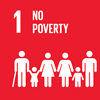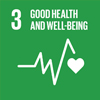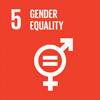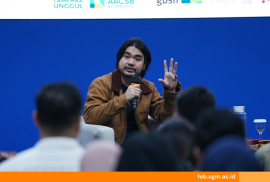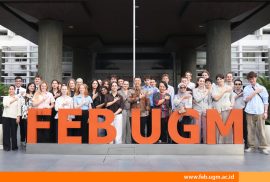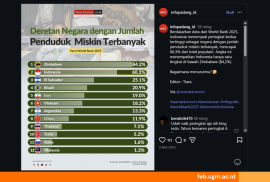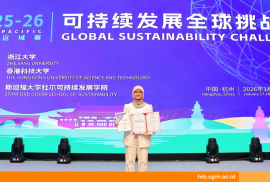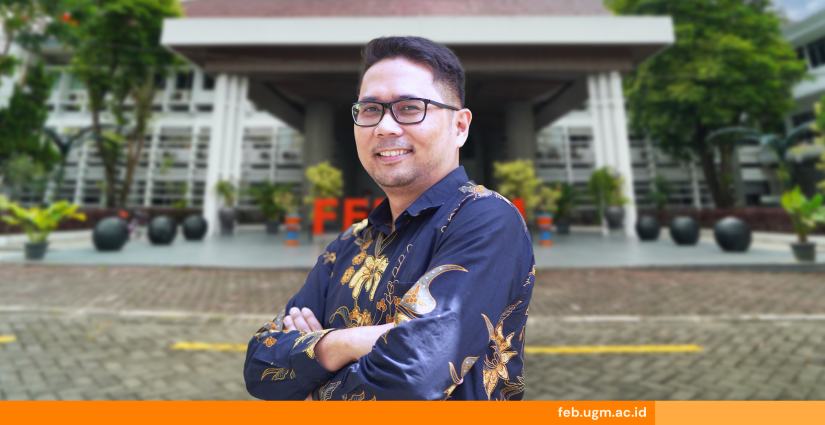
West Java Governor Dedi Mulyadi plans to make vasectomy a requirement for receiving social assistance (bansos). This proposal has sparked significant public attention and criticism. Economist from the Faculty of Economics and Business at Universitas Gadjah Mada (FEB UGM), and Coordinator of EQUITAS (Equitable Transformation for Alleviating Poverty and Inequality), Wisnu Setiadi Nugroho, Ph.D., believes that the idea, while well-intentioned, is inappropriate.
The following are excerpts from an interview conducted on May 4, 2025, regarding the controversy.
What is your view on the proposal to make vasectomy a condition for receiving social assistance?
The intention is good. We indeed face an issue where households from lower-income groups tend to have more family members than those in higher-income brackets. However, the policy proposed by the West Java Governor is rather extreme. It is not only controversial but also socially risky in the long run.
While the objective may come from a good place — possibly from a gender perspective where Kang Dedi Mulyadi sees this as not solely a women’s issue but also a men’s issue — pushing for male vasectomy seems too extreme and premature. More careful consideration is needed, and I believe there are better alternatives to such a policy.
What alternatives do you suggest?
There are many. We had a successful model during the New Order era with the family planning program through BKKBN, which effectively curbed population growth. The government can revitalize the program in the future. In addition, programs should be voluntary.
Looking at other countries, there are indirect policies that influence birth rates. For example, in the United States and the UK, housing regulations limit the number of residents based on the number of bedrooms — e.g., a two-bedroom house may only accommodate a maximum of five people. Such regulations encourage people to think twice before expanding their families. These policies are more solution-oriented and do not involve coercion.
How does this proposal align with inclusive social and economic policy perspectives?
Tying vasectomy to social assistance creates a perception of coercion. It risks marginalizing and discriminating against underprivileged families. Although the intention might be to help, the policy could foster exclusivity. Those in desperate need of assistance might feel forced to comply.
In the end, a policy meant to be inclusive becomes exclusive — which is dangerous for those families’ future. If they refuse the procedure, they get no assistance; if they comply, we don’t know whether they genuinely wish to have no more children. It’s important to remember that vasectomy is a permanent procedure.
How does this relate to human rights and voluntarism in family planning programs?
If implemented, the policy would feel highly discriminatory toward people with low incomes. Bodily autonomy should belong to the individual. The state should not dictate what people do with their bodies. Its role is to provide guidelines and education, not to enforce procedures. Voluntariness is key.
Would this approach be practical in population control or create new problems?
A more effective and sustainable approach would be adopting the successful model of Indonesia’s population control efforts during the 1970s–1990s, emphasizing voluntary and persuasive family planning (Keluarga Berencana/KB). These programs worked well because they focused on public education, encouraged participation, and empowered individuals to make informed choices. This program led to strong community commitment and yielded significant results.
Are there potential moral hazards in this policy?
Yes, moral hazard is a serious risk. People might resort to illegal clinics or falsify sterilization documents due to pressure. Coercive policies can lead to exploitation. Therefore, instead of using a coercive approach, it’s better to use positive incentives. For instance, the government can reward families with only two children with benefits like free healthcare. Such policies are more effective because they respect choice and encourage participation.
How should the government design population policies?
Policies should be humane and participatory. Coercive ones often lead to avoidance behaviors, such as falsifying compliance or seeking illegal alternatives. Such actions are risky and harmful in the long run.
Forced measures also risk violating human rights, especially reproductive rights — a fundamental individual freedom. The state should focus on educating citizens, offering incentives, and creating environments that support informed and responsible decision-making.
If the government wishes to revive family planning effectively, the best approach is through awareness-building, education, and incentives — not coercion. There are many creative ways to support the program without resorting to extreme measures like mandatory vasectomy, which is likely to provoke strong public opposition.
Are there examples of similar policies in other countries?
In China, the one-child policy led to serious social issues, including the phenomenon of missing girls, where families prioritized having sons, leading to gender imbalances and long-term consequences.
In the 1970s, India also implemented a mass digitized population control program, which faced widespread protests and criticism from human rights organizations. Eventually, the government discontinued the program due to concerns over human rights violations.
In both countries, coercive approaches failed. Indonesia’s voluntary family planning efforts during the New Order, which relied on education and community engagement, is the most successful example.
What are the long-term implications for public trust in government assistance programs?
If vasectomy becomes mandatory, it may trigger public antipathy. Even with good intentions, forced policies raise suspicion. Coercive approaches could damage long-term trust in government, especially if citizens feel that their private lives are being over-regulated.
This approach raises a critical question: Do people still have autonomy over their lives or is everything dictated by the state? Hence, policies need to be humane and participatory. The government should listen to the people’s needs and educate them about the risks of having many children — such as malnutrition and economic strain. This way, citizens can make informed, voluntary choices.
What are your recommendations for the government to balance population policy, welfare, and individual rights fairly?
First, the government should revive the family planning program focusing on voluntary participation. The government should emphasize productive health education. High birth rates are not just about children but also about early marriages — this is a key issue.
Aside from education, avoid coercion as it breeds distrust. Welfare incentives should be framed as choices, not financial pressure. The government could expand social protection and security schemes. Additionally, innovative incentives could be introduced — for example, free contraception or vouchers for summer activities, as practiced in the U.S.
Interview by: Kurnia Ekaptiningrum
Sustainable Development Goals

